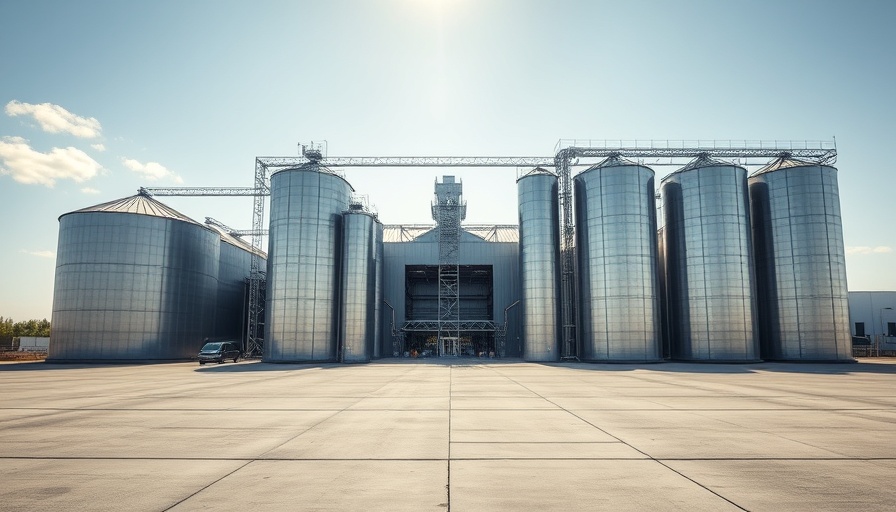
Japfa’s Sustainability Linked Loan: An Overview of Ambitious Plans
Japfa, a leading agri-food corporation headquartered in Singapore, has recently rolled out a sustainability-linked loan (SLL) amounting to US$150 million, aimed specifically at addressing its water and coal use. However, as environmental advocacy groups have pointed out, this loan largely overlooks critical issues of deforestation linked to its supply chain. While there's a focus on cleaner energy sources, concerns about the ongoing environmental impacts of deforestation remain largely unaddressed.
The Critical Silence on Deforestation Risk
Environmental organizations have criticized Japfa for failing to set concrete targets aimed at curbing deforestation across its supply chain—criteria that are becoming increasingly essential in the fight against climate change. Despite making a deforestation commitment for certain soy products, this initiative has not been extended to other high-risk commodities including beef and palm oil. This lack of commitment raises vital questions about Japfa's overall strategy, emphasizing the need for a shift in focus towards sustainable agriculture that genuinely champions environmental stewardship.
Clarification on Environmental Commitments
In a recent statement, a spokesperson for Japfa clarified its intended path toward sustainability, noting plans to phase out coal energy and transition to renewable sources such as agricultural biomass and on-site solar installations. However, it is crucial to note that transitioning to cleaner energy only addresses a fraction of their emissions problem. According to their sustainability report, Scope 3 emissions—derived from the entire supply chain—accounted for over 6 million tonnes of CO2 equivalent in 2024, suggesting a need for a more comprehensive approach to environmental responsibility.
What Does this Mean for the Future of Sustainable Practices?
As consumers become increasingly aware of environmental issues and the importance of sustainable practices, companies like Japfa face growing pressure to align their operations with greater transparency and responsibility. It raises critical discussions around how sustainability-linked loans should be structured in order to be genuinely effective. This includes incorporating measurable commitments to reduce overall carbon footprints and address human rights abuses related to agricultural practices.
The Bigger Picture: Comparing Industry Standards
Looking at industry standards, other corporations have begun to set comprehensive sustainability goals that not only emphasize renewable energy but also prioritize ethical sourcing and ecosystem conservation. This might serve as a benchmark for Japfa as it navigates its sustainability framework. Following these industry leaders could help Japfa enhance its credibility in the market and meet the expectations of eco-conscious consumers.
Engaging the Community in Sustainability
There is an undeniable urgency for companies to engage with communities and stakeholders in crafting these sustainability initiatives, as public perception can greatly influence corporate practices. Initiatives that promote awareness for environmental conservation and engage communities in dialogues about best practices could be beneficial not only for companies like Japfa but also for the public's trust in their commitment to sustainability.
Take Action: Support Sustainable Living
As consumers, we have the power to demand practices that align with sustainability. By choosing eco-friendly products and advocating for ethically sourced materials, we can help guide companies towards responsible consumption. This includes supporting legislation and corporate accountability that enforces environmental protection, ensuring that companies like Japfa prioritize the health of our planet as much as their profit margins.
In conclusion, while Japfa’s new sustainability-linked loan is a step forward, it is essential to critically evaluate the depth of these commitments. By actively encouraging and holding corporations accountable through informed choices, we can drive change that truly supports a sustainable future.
 Add Row
Add Row  Add
Add 



Write A Comment